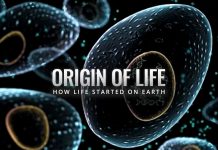BBC’s Horizon takes us on a journey to one of the most intriguing and mysterious places in our solar system – Titan. The largest moon of Saturn, Titan is the only known celestial body in our solar system, besides Earth, to have stable liquid on its surface. This unique characteristic has made Titan a prime target for scientific study, as it could potentially provide insights into the origins of life on Earth.
The documentary, titled “Titan: A Place Like Home,” explores the latest findings from the Cassini-Huygens spacecraft, which conducted an in-depth study of Titan over the course of more than a decade. Viewers will be transported to the distant moon, where they will witness breathtaking landscapes and uncover fascinating geological features such as mountains and lakes.
One of the most striking similarities between Titan and Earth is the presence of a thick atmosphere, composed mostly of nitrogen, that protects the surface from the harsh conditions of space. The thick clouds and haze that obscure the surface have made it difficult for scientists to study the moon’s surface, but new technologies have allowed us to peer through the haze and gain a clearer understanding of its geology.
Titan’s atmosphere is also rich in organic compounds, which could potentially provide clues about the origins of life on Earth. The presence of liquid methane and ethane on the surface of the moon, along with the organic compounds in the atmosphere, have led scientists to hypothesize that Titan could be a host for some form of microbial life.
The documentary provides a comprehensive look at the latest scientific findings and theories surrounding Titan, and viewers will come away with a better understanding of the fascinating geology and potential for life on this distant moon.

































